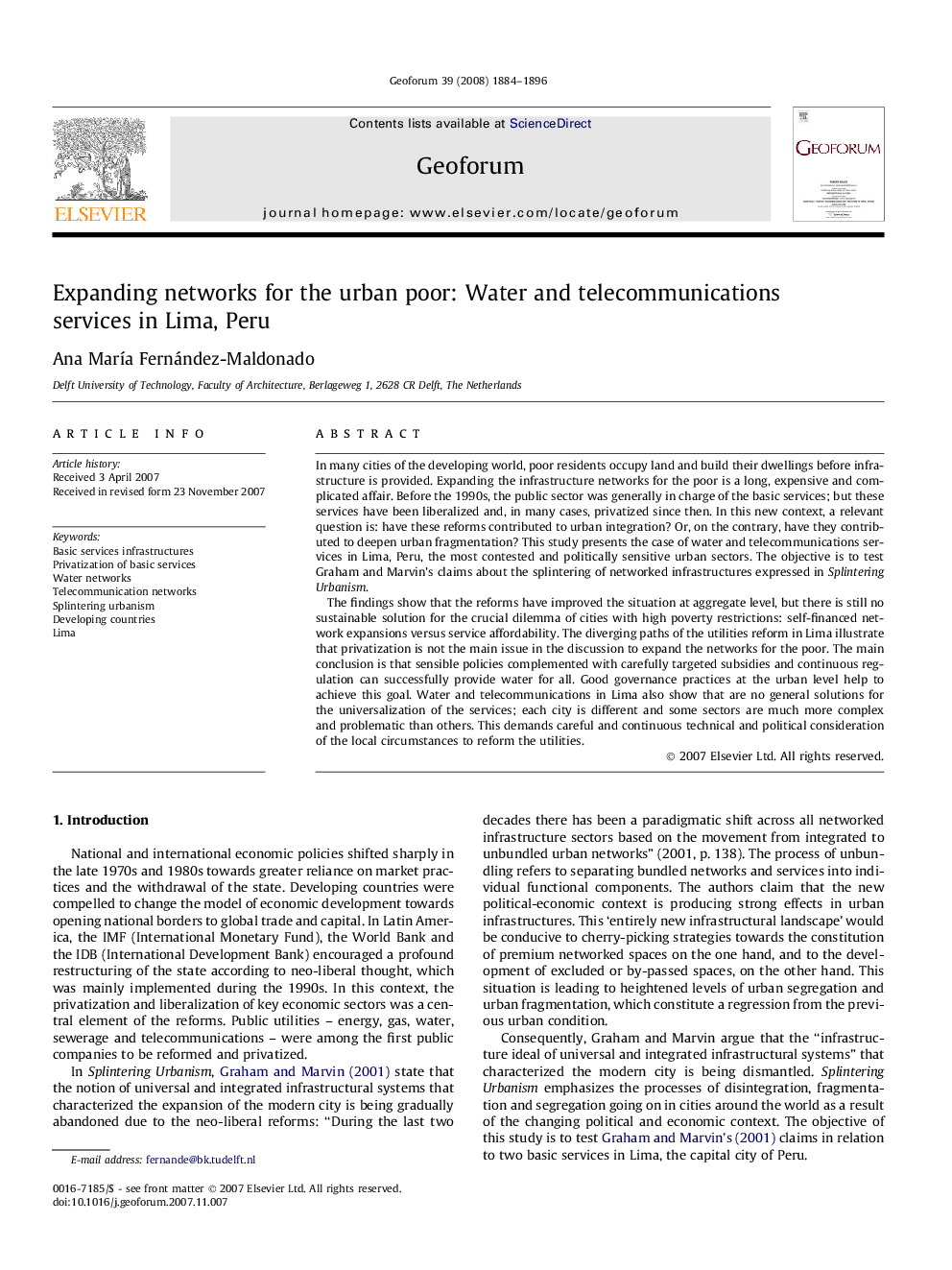| Article ID | Journal | Published Year | Pages | File Type |
|---|---|---|---|---|
| 5074841 | Geoforum | 2008 | 13 Pages |
Abstract
The findings show that the reforms have improved the situation at aggregate level, but there is still no sustainable solution for the crucial dilemma of cities with high poverty restrictions: self-financed network expansions versus service affordability. The diverging paths of the utilities reform in Lima illustrate that privatization is not the main issue in the discussion to expand the networks for the poor. The main conclusion is that sensible policies complemented with carefully targeted subsidies and continuous regulation can successfully provide water for all. Good governance practices at the urban level help to achieve this goal. Water and telecommunications in Lima also show that are no general solutions for the universalization of the services; each city is different and some sectors are much more complex and problematic than others. This demands careful and continuous technical and political consideration of the local circumstances to reform the utilities.
Related Topics
Social Sciences and Humanities
Economics, Econometrics and Finance
Economics and Econometrics
Authors
Ana MarÃa Fernández-Maldonado,
